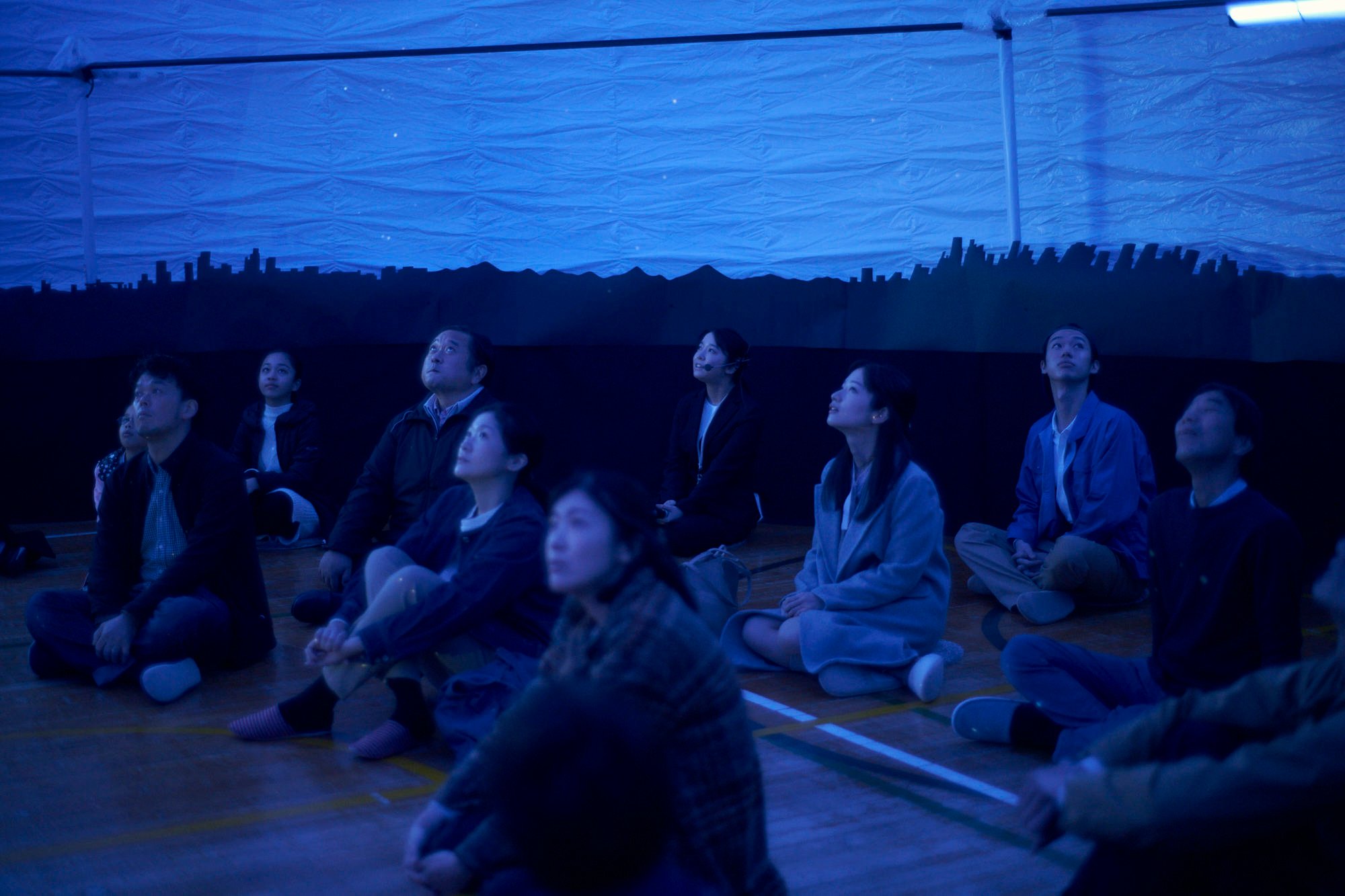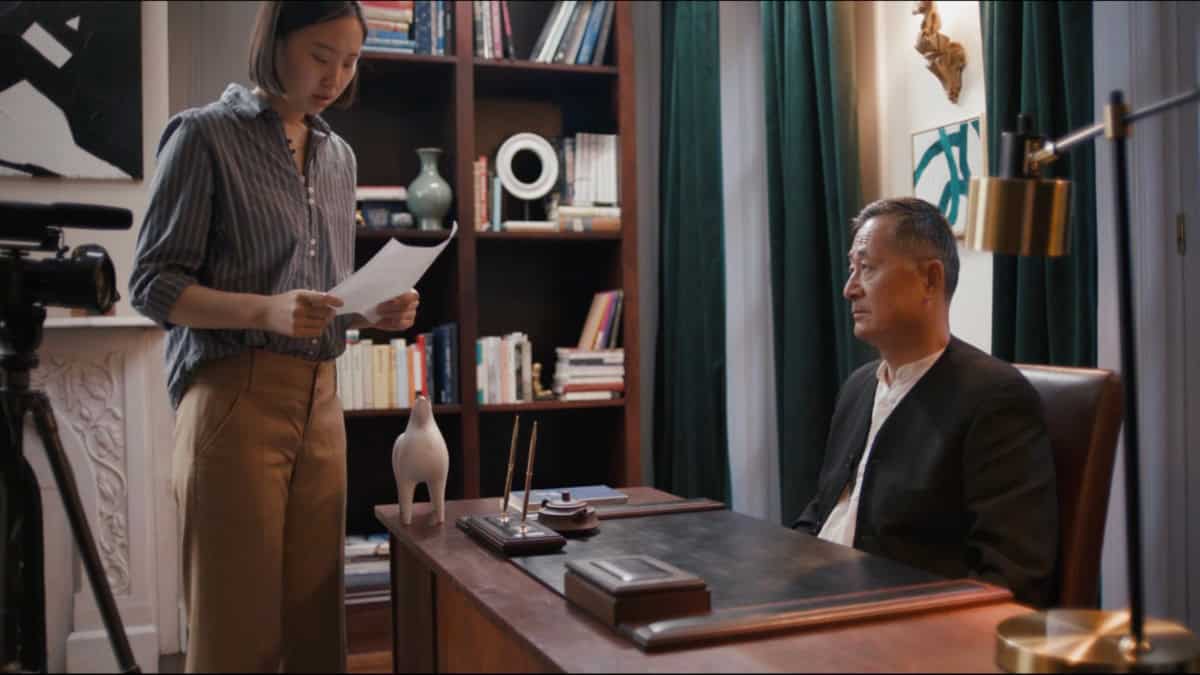Movie Reviews
‘Saltburn’: A Movie Review

This article is written by a student writer from the Her Campus at Pace chapter.
As an avid thriller movie watcher, specifically in the psychological realm — my familiarity with the genre didn’t matter while being in the audience of Saltburn. Shocking, twisting, and dark is an understatement for adjectives that could come even close to describing the content of this film. Even while seeing and being excited for the trailer that came out over two months ago, the movie was unlike how I expected it at all. With uniquely fascinating characters, dialogue between adversaries with strong charisma and chemistry, and overall shocking plot twists, Saltburn kept me on the edge of my seat for every second, every setting change, and every character’s decision.
Heartthrob of 2023, Jacob Elordi, plays Felix Catton, a typical snobby, socially unaware nepotism brat who attends the esteemed Oxford University in England, just because he can. He comes from old money that dates back to every King Henry with a number behind it, which is what he is known and flocked upon for at school. While away from his summer home and sanctuary called Saltburn in the English countryside, Felix Catton spends his time drinking, partying, hanging out with his clique of other rich Oxford students, and hooking up with countless amount of girls. Felix is somewhat more caring than his friends and cousin Farleigh. And his closest friend at the moment happens to be the quiet, restrained, and exceptionally smart bystander, Oliver Quick.
Oliver Quick, portrayed by the impressive Barry Keoghan, although mostly seen in the shadows throughout the beginning of the film, quickly inserts himself into Felix’s lavish life. He watches and preys upon Felix and his lifestyle by being the quiet nerd that no one personally knows. It only takes Oliver days before he knows he wants Felix. A friendship blossoms between the duo, especially after Oliver informs Felix of his unkempt and stressful living situation. He also somehow attends one of the most expensive and pretentious schools in the world purely by scholarship. Stressed, afraid, and now saddened by his father’s gruesome death, Oliver refuses to return home for the summer, elucidating to Felix just how disgraceful his family is. Being the bare minimum of a caring and considerate spoon-fed ingrate that Felix so happens to be, he kindly offers Oliver a humble room in his family’s sprawling estate, Saltburn Castle.
This tale is one filled with desire, desperation, greed, and lust that demonstrates Oliver’s shameless addiction to none other than his best friend, Felix Catton. The poisonous relationship only escalates when Felix and Oliver find themselves more secluded in the English countryside, surrounded only by Felix’s parents, Elsbeth (Rosamund Pike) and Sir James Catton (Richard E. Grant), his sister Venetia Catton (Alison Oliver), cousin Farleigh (Archie Madekwe), and the staff of the estate, including its meticulous butler, Duncan (Paul Rhys). While Felix is living his normal, carefree life, indulging in the lack of pressure from grades at school, he realizes this is an entirely different world for Oliver with his poor junkie parents.
This story will make you laugh, cry, gasp, scream. Oliver’s character is a complex one, depicting the meaning of obsession, blurring the lines between insanity and love, and displaying what lies can do to a relationship. The question I think most people have after watching the film is, “Did Oliver really love Felix?” Personally, I think the answer to this question all depends on your definition of the word love, and what it really means to be loved. Love is subjective, in the sense that to one person, it could mean everything that Oliver did to and for Felix, and to others, it may be the exact opposite.
Emerald Fennell, known actress-turned-writer and director of Saltburn, did an amazing job of making a movie that perfectly depicts desire and passion. The scenes of summer in the English countryside and autumn at the Oxford University campus in the early 2000s made for a beautiful backdrop for the movie. Bright and saturated warm colors for summer opposed by cool and dark blues and browns in the fall create a unique and beautiful contrast that allows the film to show the audience rather than tell them the time or setting throughout the non-linear storytelling; Fennell’s choices in color grading guides the audience to these conclusions. The evolution and use of a timeline were shown through costume and makeup making it very easy to follow. While there were abrupt actions and insane twists throughout the film, it wasn’t hard to follow the movie’s dialogue itself. Casting was also beautifully done, specifically between the dynamic of Felix and Oliver. Felix is played by the stunning Jacob Elordi, an immensely attractive and well-known actor, acting in films such as The Kissing Booth trilogy and Sofia Coppola’s amazing new film, Priscilla. Elordi starring across the massively successful and talented Barry Keoghan, seen in award-winning films like Dunkirk and The Banshees of Inisherin, seems almost random, but the film proves they work great together. Even with their characters’ complexities, the paradox of Keoghan playing a character that is nerdy, reserved, and unpopular, but also being the widely feared antagonist of the film, was a wonderful and refreshing contrast that I really enjoyed.
One aspect of a film that can either make or break it which is a wildly underrated portion of filmmaking, is the score and soundtrack. This soundtrack was as vicious and interesting as every scene. The 1900s classical sound in the scenes of Oliver and Felix at the Saltburn estate was well-timed and honestly made the movie more enjoyable. I think the Saltburn score and soundtrack created magic. Arguably the best, and my absolute favorite part of the film, was due to a song on the soundtrack: the final scene in which Oliver is dancing to the incredible song, “Murder on the Dancefloor,” by British pop singer Sophie Ellis-Bextor. It was a simple scene, yet so captivating and perfectly encapsulated the meaning of the film.
A five out of five-star rating of this film still seems almost wrong, in the sense that I think this film deserves more. A film that makes me think and feel betrayed as if I was an actual character in the film, makes me go home and contemplate everything I could’ve missed, and watch all the interviews with the cast, will automatically earn a high ranking in my long list of movies I’ve seen. I feel as though it’s easy for thrillers to miss the mark, simply because the genre has been done so many times and can sometimes feel repetitive. However, if I’ve ever been shocked by a film, it’s been by the deeply dark, twisted, and passionate story of Saltburn.

Movie Reviews
All the Long Nights: meditative return by Small, Slow But Steady director

3/5 stars
The fate of the universe does not always need to hang in the balance to create compelling drama. Sometimes, something as simple as garnering a better understanding of a colleague can prove sufficient, as is the case in Sho Miyake’s new drama.
Adapted from Maiko Seo’s novel of the same name, All the Long Nights follows two young people whose prospects in the adult world have been cut short by disorders that affect their everyday experience.
Misa (Mone Kamishiraishi) suffers from extreme premenstrual syndrome, which triggers mood swings so violent that she was forced to quit her previous office job.
Meanwhile, Takatoshi (Hokuto Matsumura) is hobbled by debilitating panic attacks, which have had a similarly negative impact on his professional aspirations.
These two lonely souls meet when Misa moves back home to be close to her ailing mother (Ryo), and gets an administrative job at a small company that distributes science equipment for children.
Initially, Misa and Takatoshi have little in common, their eccentricities and peccadillos even causing a degree of tension and irritation between them.
But when Misa discovers that Takatoshi takes the same herbal medication as she does, it sparks a growing understanding and empathy between the two of them, which only grows when they team up to collaborate on a planetarium project.
Miyake’s film conjures an affectionate portrayal of sleepy suburbia, exemplified by the low-stakes challenges of small-business office culture that unfolds at a gentle, unhurried pace, as one has come to expect from Japanese dramas of this ilk.
Where this film differs from many of its contemporaries, however, is in the absence of such archetypal clichés as romance or illness. Misa and Takatoshi’s relationship remains defiantly platonic throughout, with neither party ever threatening to overstep their boundaries or behave inappropriately.
Instead of a story about finding a kindred spirit with whom to explore the boundless expanse of the universe, All the Long Nights is a tale of curiosity and understanding.
Both characters strive to learn more about their colleague’s physiological disorder to better inform themselves, but also so that they might become a more valuable and empathetic friend to the other.

The performances are understated but also effective, unburdened by the need to resort to histrionics to advance the narrative.
Undeniably, Misa and Takatoshi come to depend upon one another as a crutch for coming to terms with their own issues, but Miyake’s proposal that this connection need go no further is as honest and refreshing as they come.
Movie Reviews
Movie review: “The Watchers”

Movie Reviews
Movie Review: ‘Summer Camp’ is an entertaining disappointment

Nothing forges a friendship like treating an arrow wound. For Ginny, Mary and Nora, an ill-fated archery lesson and an injured classmate are just the beginning of the lifetime of trouble they’re about to start.
Ginny is a year above the other two, more experienced in both summer camp and girlhood, and takes it upon herself to somewhat forcefully guide her younger friends. Mary cowers in the bathroom away from her bunkmates, spouting medical facts, while Nora hangs back, out of place. When their camp counselor plucks them out of their cabin groups to place them in the new “Sassafras” cabin, they feel like they fit in somewhere for the first time.
50 years later, “Summer Camp” sees the three girls, now women, reunite for the anniversary reunion of the very same camp at which they met. Although they’ve been in touch on-and-off in the preceding decades, this will be the first time the women have seen each other in 15 years.
Between old camp crushes, childhood nemeses and the newer trials of adulthood, the three learn to understand each other, and themselves, in a way that has eluded them the entirety of their friendship.
I really wanted to like “Summer Camp.”
The opening scene, a glimpse at the girls’ first year together at Camp Pinnacle, does a good job at establishing Ginny, Mary and Nora’s dynamic. It’s sweet, funny and feels true to the experience of many adolescent girls’ friendships.
On top of that, this movie’s star-studded cast and heartwarming concept endeared me to it the moment I saw the trailer. Unfortunately, an enticing trailer is about the most “Summer Camp” has to offer.
As soon as we meet our trio as adults, things start to fall apart. It really feels like the whole movie was made to be cut into a trailer — the music is generic, shots cut abruptly between poses, places and scenes, and at one point two of the three separate shots of each woman exiting Ginny’s tour bus are repeated.
The main character and sometimes narrator, Ginny Moon, is a self-help writer who uses “therapy speak” liberally and preaches a tough-love approach to self improvement. This sometimes works perfectly for the movie’s themes but is often used to thwop the viewer over the head with a mallet labeled “WHAT THE CHARACTERS ARE THINKING” rather than letting us figure it out for ourselves.
There are glimpses of a better script — like when Mary’s husband asks her whether she was actually having fun or just being bullied, presumably by Ginny. This added some depth to her relationship with him, implying he actually does listen to her sometimes, and acknowledged the nagging feeling I’d been getting in the back of my head: “Hey, isn’t Ginny kind of mean?”
Despite all my annoyance with “Summer Camp,” there were a few things I really liked about it. I’m a lot younger than the main characters of this movie, but there were multiple points where I found myself thinking, “Hey, my aunt talks like that!” or, “Wow, he sounds just like my dad.”
The dynamic of the three main characters felt very true to life, I’ve known and been each of them at one point or another. It felt especially accurate to the relationships of girls and women, and seeing our protagonists reconcile at the end was, for me, genuinely heartwarming.
“Summer Camp” is not a movie I can recommend for quality, but if you’re looking for a lighthearted, somewhat silly romp to help you get into the summer spirit, this one will do just fine.
Other stories by Caroline
Caroline Julstrom, intern, may be reached at 218-855-5851 or cjulstrom@brainerddispatch.com.
Caroline Julstrom finished her second year at the University of Minnesota in May 2024, and started working as a summer intern for the Brainerd Dispatch in June.
-

 World1 week ago
World1 week agoProtesters in Brussels march against right-wing ideology
-

 News1 week ago
News1 week agoA fast-moving wildfire spreads north of Los Angeles, forcing evacuations
-

 Movie Reviews1 week ago
Movie Reviews1 week agoShort Film Review: Willow and Wu (2024) by Kathy Meng
-

 World1 week ago
World1 week agoAl-Qaeda affiliate claims responsibility for June attack in Burkina Faso
-

 News1 week ago
News1 week agoMass shooting at Rochester Hills splash pad: Everything we know
-

 Movie Reviews1 week ago
Movie Reviews1 week agoFancy Dance (2024) – Movie Review
-

 Politics1 week ago
Politics1 week agoTrump resurrects Biden's 'devastating' 1994 crime bill as he courts Black Detroit voters: ‘Super predators'
-

 World1 week ago
World1 week agoRussia sets date for closed-door trial of US journalist






/cdn.vox-cdn.com/uploads/chorus_asset/file/25507261/Suspicious_contact_warning.png)












